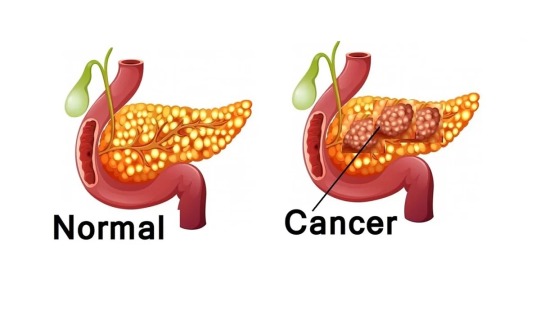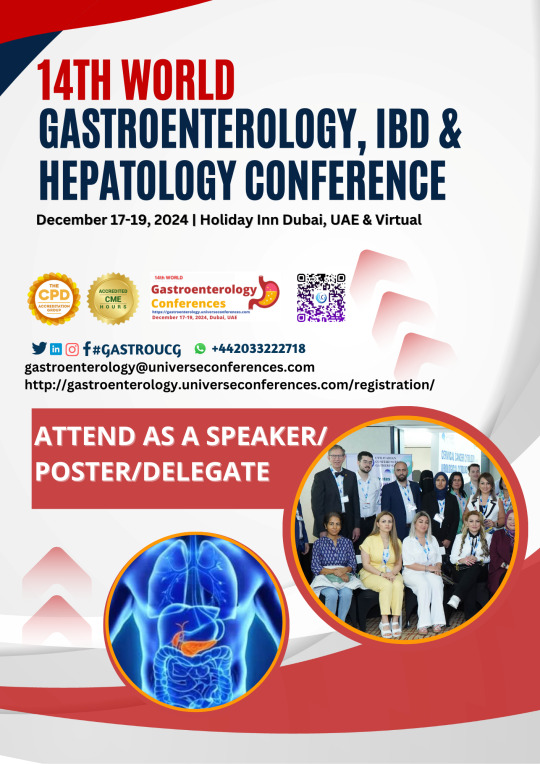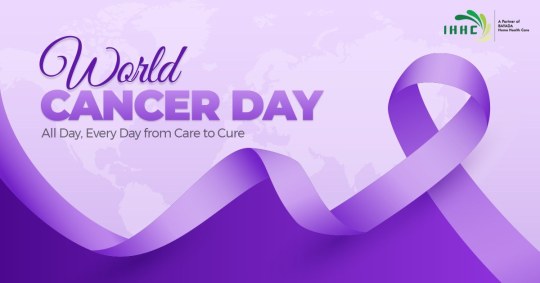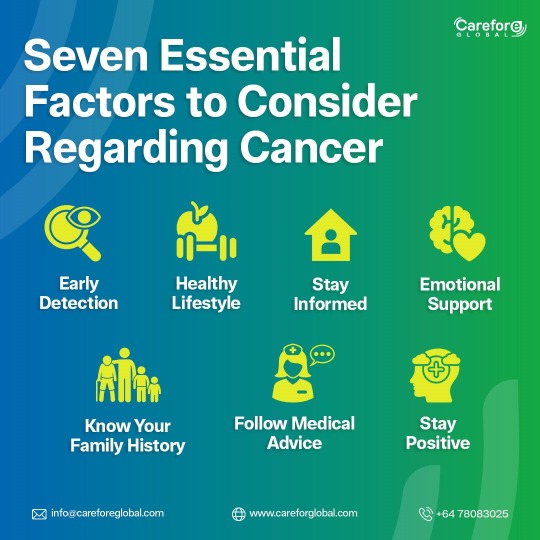#cancersupport
Text
Reducing the risk of gastric cancer is within your reach! 🍎🥦 Follow a healthy diet, 🚭 quit smoking, and embrace a lifestyle that prioritizes your well-being. Let's #PreventGastricCancer together! 💪❤️
For more details click on the link 👇🏻
https://bit.ly/3osreVo
#HopeAgainstCancer#ICANWIN#YESITSRAM#FightAgainstCancer#CancerAwarenessMatters#TogetherAgainstCancer#CancerWarriorsUnite#EmpoweredByHope#RaisingCancerAwareness#IgniteTheFight#ConquerCancerTogether#InspireHopeForSurvivors#CancerFreeFuture#CancerAwareness#CancerSupport#CancerSurvivor#CancerFighter#CancerCommunity#CancerResearch#CancerPrevention#CancerFree#EndCancer#StandUpToCancer#CancerJourney#CancerWarrior#CancerAware#CancerThrive#NoOneFightsAlone
26 notes
·
View notes
Text

🎀✨️A cure worth fighting for✨️ 🎀
#playwarframe#warframe fanart#warframeart#digital art#warframe captura#meleeprowess#tennocreate#onlyframes#qtcc#cancersupport#cancersucks#cancerresearch
13 notes
·
View notes
Text
Read about my fight against Brain Cancer
A CaringBridge Site was created for Heather for people to stay updated about my fight with brain cancer. It‘s a caring social network to help people stay connected with family and friends during a health event. It will have all my day-to-day updates and ways you can help in addition to sharing my story.
Visit my site https://caringbridge.org/visit/heatherquarnstrom
Site Name: heatherquarnstrom
3 notes
·
View notes
Text
Www.funlittledesignstore.co.uk, treat yourself!
#funlittledesignstore#support small business#artists on tumblr#stickers#artistic#my art#artwork#shop small#handmade#skullart#pumpkins#mushrooms#cancersupport
2 notes
·
View notes
Text
#cancersupport#cancersurvivor#motivation#godisgood#positive mental attitude#linkedin#community#lifestyle#love
2 notes
·
View notes
Text
Buy india's best natural ayurvedic cancer tablets for cancer patient
Oham Shoham is a renowned name in the world of Ayurveda, committed to offering premium quality Ayurveda medicines and wellness products. Buy india's best natural ayurvedic cancer tablets for cancer patient Our offerings are crafted using traditional Ayurveda formulations and pure, natural ingredients. We deliver our products across India, right to your doorstep. Ordering from Oham Shoham Ayurveda is simple. Visit our website at ohamshohamayurveda.com to explore our products and place your order online. You can also reach out to us via phone or email for any assistance.
#CancerAwareness#CancerSupport#CancerSurvivor#CancerResearch#CancerPrevention#CancerWarrior#CancerFree#CancerTreatment
0 notes
Text
Chemotherapy Center in Navi Mumbai
Our Chemotherapy Center in Navi Mumbai provides advanced cancer treatments and comprehensive support services to patients suffering from cancer. Our experienced staff is dedicated to providing compassionate care and the best possible outcomes for each patient. We offer a wide range of treatments, including chemotherapy, radiation therapy, and immunotherapy, as well as emotional and spiritual support.
For more information : https://mangalprabhu.com/chemotherapy/
#NaviMumbaiCancerCare#ChemotherapyTreatment#FightAgainstCancer#NaviMumbaiOncology#CancerWarrior#ChemotherapyCenter#NaviMumbaiHealthcare#CancerSupport#HopeForCancerPatients#NaviMumbaiMedicalCenter
0 notes
Text
youtube
#mind bodi spirit book#meditations#mindbodyspirit#holistic#youtube#books#audiobook narration#balboapress#hayhouse#author#writer#writerscommunity#readers#linkedin#facebook#instagram#reels#viralreels#videos#healthandwellness#healthcare#mentalhealth#cancersupport#followme#subscribe#youtubers#x#sensory meditation#meditate daily#christians
0 notes
Text
Shedding Light on Pancreatic Cancer: Understanding, Symptoms, Diet, and Treatment at Valentis Cancer Hospital in Meerut
Pancreatic cancer has emerged as one of the most challenging diseases of our time, with its incidence on the rise. In this blog, we delve into the complexities of pancreatic cancer, exploring why its cases are increasing, common symptoms, dietary considerations, and the advanced Pancreatic Cancer Treatment in Meerut available at Valentis Cancer Hospital.
Understanding Pancreatic Cancer:
Pancreatic cancer occurs when abnormal cells in the pancreas grow uncontrollably, forming tumors. This type of cancer is often diagnosed at an advanced stage, making it difficult to treat. Factors contributing to the high incidence of pancreatic cancer include smoking, obesity, family history of the disease, and certain genetic mutations.

Why Pancreatic Cancer Cases are Rising:
Several factors contribute to the increasing prevalence of pancreatic cancer. Lifestyle choices such as smoking, excessive alcohol consumption, and a diet high in processed foods and red meat have been linked to an elevated risk of developing pancreatic cancer. Additionally, the aging population and improved diagnostic techniques may also contribute to the rising number of cases.
Common Symptoms of Pancreatic Cancer:
Pancreatic cancer often presents with nonspecific symptoms in its early stages, which can make diagnosis challenging. However, as the disease progresses, symptoms may include abdominal pain, jaundice, unexplained weight loss, loss of appetite, nausea, and changes in bowel habits. Recognizing these symptoms and seeking prompt medical attention is crucial for early detection and improved outcomes.
Dietary Considerations for Pancreatic Cancer:
While there is no specific diet proven to prevent or cure pancreatic cancer, making healthy dietary choices can help support overall health and well-being. A diet rich in fruits, vegetables, whole grains, lean proteins, and healthy fats can provide essential nutrients and antioxidants to boost the immune system and aid in cancer prevention. Additionally, avoiding or limiting alcohol, processed foods, sugary snacks, and red meat may reduce the risk of developing pancreatic cancer.
Valentis Cancer Hospital: Leading the Way in Pancreatic Cancer Treatment in Meerut
Valentis Cancer Hospital is at the forefront of pancreatic cancer treatment, offering comprehensive care and advanced treatment options to patients. With a multidisciplinary team of oncologists, surgeons, radiologists, and supportive care specialists, Valentis provides personalized treatment plans tailored to each patient's unique needs.
Advanced treatment options for pancreatic cancer at Valentis include surgery, chemotherapy, radiation therapy, targeted therapy, immunotherapy, and palliative care. The hospital's state-of-the-art facilities and compassionate approach ensure that patients receive the highest quality care and support throughout their cancer journey.
Conclusion:
Pancreatic cancer remains a formidable challenge, but with increased awareness, early detection, healthy lifestyle choices, and access to advanced treatment options like those available at Valentis Cancer Hospital in Meerut, there is hope for improved outcomes. By understanding the risk factors, recognizing symptoms, making healthy dietary choices, and seeking timely medical attention, we can work together to combat pancreatic cancer and improve the lives of those affected by this devastating disease.
#PancreaticCancer#CancerAwareness#PancreaticCancerTreatment#ValentisCancerHospital#Meerut#Oncology#CancerResearch#CancerTreatment#CancerPrevention#HealthyLifestyle#EarlyDetection#DietAndNutrition#MedicalTreatment#CancerSupport#Healthcare#Wellness#Oncologists#RadiationTherapy#Chemotherapy#Immunotherapy#PalliativeCare#CancerSurvivors#AwarenessCampaign#MedicalFacilities#PatientCare#HealthEducation#CancerDiagnosis#RiskFactors#Symptoms#CancerScreening
0 notes
Text
Shedding Light on Gallbladder Cancer: Risk Factors and Prevention
Gallbladder cancer is a relatively rare but deadly form of cancer that develops in the gallbladder—a small, pear-shaped organ located in the upper right portion of the abdomen. The gallbladder stores and concentrates bile produced by the liver and released into the small intestine to help with fat digestion. While not very common, gallbladder cancer poses serious health risks and requires urgent medical intervention for treatment. This in-depth article aims to provide comprehensive information about gallbladder cancer, including risk factors, symptoms, diagnostic tests, staging, treatment options and prevention strategies.
What is Gallbladder Cancer?
Gallbladder cancer, also known as cholangiocarcinoma, occurs when abnormal and uncontrolled cell growth develops in the epithelial lining of the gallbladder. These cancerous cells form tumors that can destroy healthy gallbladder tissue and spread to other organs if left undetected and untreated. Gallbladder cancer is considered an aggressive form of cancer as it often does not show obvious symptoms until reaching an advanced stage. The majority of gallbladder cancers are diagnosed at a late stage when the probability of long-term survival is quite low.
Risk Factors for Gallbladder Cancer
Several factors are known to increase the risk of developing gallbladder cancer. Age is a significant risk factor, with most gallbladder cancers occurring in people over 60 years of age. Women are also at a slightly higher risk than men. Other prominent risk factors include gallstones, infection of the gallbladder (cholecystitis), obesity, smoking, and family history of gallbladder cancer. People with conditions like porcelain gallbladder or gallbladder polyps are also known to face elevated risk. Chronic inflammation caused by these risk factors is believed to damage gallbladder cells over many years and increase cancer risk.
Symptoms of Gallbladder Cancer
Early stage gallbladder cancer often does not present any perceivable symptoms. As the cancer progresses and spreads, the following signs and symptoms may develop:
- Continuous pain in the upper right or middle section of the abdomen
- Jaundice or yellowing of skin and whites of eyes
- Loss of appetite and unintended weight loss
- Fever
- Nausea or vomiting
- Enlarged lymph nodes in neck region
- Fatigue
- Abdominal swelling or lump
- Pain under ribs on right side of body
Diagnostic Tests for Gallbladder Cancer
When gallbladder cancer is suspected based on symptoms and medical history, doctors perform some imaging tests and laboratory workups to confirm diagnosis:
- Abdominal ultrasound examines gallbladder thickness and mass formation
- CT scan provides detailed images of organs and lymph nodes
- MRI scan uses magnetic fields to produce detailed pictures of soft tissues
- ERCP enables direct visualization and biopsy of gallbladder
- Blood test to check bilirubin, alkaline phosphatase and liver enzyme levels
- Biopsy involves surgically removing gallbladder tissue sample for examination under microscope
Staging Gallbladder Cancer
0 notes
Text
Cervical Cancer: Understanding the Disease, Prevention, and Treatment

Introduction:
Cervical cancer is a significant health concern affecting women worldwide. It is a type of cancer that develops in the cervix, the lower part of the uterus. In this blog, we will explore the key aspects of cervical cancer, including its causes, risk factors, prevention strategies, early detection methods, and treatment options.
Causes and Risk Factors:
The primary cause of cervical cancer is persistent infection with high-risk types of human papillomavirus (HPV), a sexually transmitted infection. Other risk factors include smoking, a weakened immune system, long-term use of oral contraceptives, multiple sexual partners, and a history of sexually transmitted infections. Understanding these risk factors can help individuals make informed choices to reduce their chances of developing cervical cancer.
Prevention Strategies:
Prevention is key when it comes to cervical cancer. Vaccination against HPV is a crucial preventive measure and is recommended for both males and females before they become sexually active. Regular cervical cancer screenings, such as Pap tests and HPV tests, are vital for early detection and intervention. Practising safe sex, maintaining good sexual health, and quitting smoking are additional preventive strategies that can significantly reduce the risk of developing cervical cancer.
Early Detection and Screening:
Regular cervical cancer screenings are essential for early detection and treatment. Pap tests, also known as Pap smears, involve collecting cells from the cervix and examining them for abnormal changes. HPV tests detect the presence of high-risk HPV strains in cervical cells. These screenings can identify precancerous changes or early-stage cervical cancer when it is most treatable.
Treatment Options:
The choice of treatment for cervical cancer depends on various factors, such as the stage of cancer, the individual's age, and overall health. Treatment options may include surgery, radiation therapy, chemotherapy, or a combination of these modalities. Surgery aims to remove the cancerous tissue, while radiation therapy uses high-energy X-rays to kill cancer cells. Chemotherapy employs drugs to destroy cancer cells or stop their growth. The treatment plan is personalised to each individual's unique situation and is determined by a team of healthcare professionals specialising in gynecologic oncology.
Conclusion:
Cervical cancer is a preventable and treatable disease when detected early. Understanding the causes, risk factors, and preventive strategies are crucial steps in reducing the incidence of cervical cancer. Regular screenings and vaccinations are fundamental in early detection and intervention. If diagnosed, various treatment options are available to manage the disease effectively. By raising awareness, promoting preventive measures, and encouraging regular screenings, we can strive towards a future where cervical cancer becomes a rarity. Together, we can make a significant impact in the fight against cervical cancer and improve women's health worldwide.
For more details click on the link 👇🏻
https://bit.ly/3osreVo
#HopeAgainstCancer#ICANWIN#YESITSRAM#FightAgainstCancer#CancerAwarenessMatters#TogetherAgainstCancer#CancerWarriorsUnite#EmpoweredByHope#RaisingCancerAwareness#IgniteTheFight#ConquerCancerTogether#InspireHopeForSurvivors#CancerFreeFuture#CancerAwareness#CancerSupport#CancerSurvivor#CancerFighter#CancerCommunity#CancerResearch#CancerPrevention#CancerFree#EndCancer#StandUpToCancer#CancerJourney#CancerWarrior#CancerAware#CancerThrive#NoOneFightsAlone
26 notes
·
View notes
Text
7 Things To Do When Your Friend Has Cancer
When a friend is diagnosed with cancer, it often feels like the ground disappears beneath your feet. You’re overrun with a sense of helplessness, wanting to do something, anything, to make their battle easier but not knowing where to start. Here’s the thing—small acts of kindness can shine a bright light on their darkest days. Let’s dive into seven heartwarming ways you can be there for your friend and genuinely make a difference.
#CancerSupport#FriendshipMatters#SupportSystem#CancerJourney#StrengthInFriendship#CareAndCompassion#TogetherAgainstCancer#FriendshipThroughCancer#BeingThere#EmpathyAndUnderstanding
0 notes
Text

Attend as a speaker/poster/delegate at the CME/CPD accredited the 14th World Gastroenterology, IBD & Hepatology Conference from December 17-19, 2024, in Dubai, UAE & Virtual.
WhatsApp us: https://wa.me/442033222718?text=
Register here: https://gastroenterology.universeconferences.com/registration/WhatsApp us: https://wa.me/442033222718?text=
#LiverCancer#PancreaticCancer#GICancerAwareness#GICancerFight#GastrointestinalOncology#GICancerResearch#CancerAwareness#CancerSupport#GICancerSurvivor#GIoncology
0 notes
Text
𝐅𝐨𝐫 𝐦𝐨𝐫𝐞 𝐝𝐞𝐭𝐚𝐢𝐥𝐬 𝐭𝐚𝐥𝐤 𝐭𝐨 𝐨𝐮𝐫 𝐄𝐱𝐩𝐞𝐫𝐭𝐬 𝐭𝐨𝐝𝐚𝐲,
𝐂𝐚𝐥𝐥 𝐮𝐬:
📞 090569 22256
🌐 behgalhospital.com
#ent #echs #oncology #cancer #oncologia #cancerawareness #breastcancer #cancersurvivor #health #chemotherapy #cancercare #cancertreatment #medicine #cancersucks #covid #oncologist #cancerresearch #cancerfighter #healthcare #cancersupport #urology #urologist #doctor #surgery #chemo #hematology #cancerwarrior #urology #hospital #prostatecancer #breastcancerawareness
#ent#echs#oncology#cancer#oncologia#cancerawareness#breastcancer#cancersurvivor#health#chemotherapy#cancercare#cancertreatment#medicine#cancersucks#covid#oncologist#cancerresearch#cancerfighter#healthcare#cancersupport#urology#urologist#doctor#surgery#chemo#hematology#cancerwarrior#hospital#prostatecancer#breastcancerawareness
0 notes
Text

We stand alongside those facing the difficulties posed by cancer and offer steadfast support and sympathy. Come stand with us in promoting awareness of cancer and offering assistance to those affected by the disease.
Talk with our expert to understand what our service encompasses,
Visit: http://www.ihhc.in | Call: 76764 33333
#IHHC#HomeHealthCare#HealthCare#CancerCareDay#CancerCare#SupportingSurvivors#CancerCareCommunity#CancerSupport#24hoursupport#NursingCare#NursingService
0 notes
Text

When it comes to cancer, it's essential to keep several things in mind:
1. Early Detection: Regular screenings and check-ups can lead to early detection, which often improves treatment outcomes.
2. Healthy Lifestyle: Maintaining a healthy lifestyle through balanced diet, regular exercise, avoiding tobacco and excessive alcohol consumption, and protecting yourself from the sun can lower your risk of developing cancer.
3. Know Your Family History: Understanding your family's medical history can help identify potential genetic predispositions to certain types of cancer.
4. Stay Informed: Educate yourself about the signs and symptoms of cancer, as well as the available treatment options.
5. Emotional Support: Cancer diagnosis and treatment can be emotionally challenging. Seek support from friends, family, support groups, or mental health professionals if needed.
6. Follow Medical Advice: If diagnosed, follow your healthcare provider's advice regarding treatment plans, medications, and lifestyle changes.
7. Stay Positive: While a cancer diagnosis can be daunting, maintaining a positive outlook and focusing on treatment can improve overall well-being and resilience.
#CancerAwareness#EarlyDetection#HealthyLifestyle#PreventCancer#FamilyHistory#CancerPrevention#StayInformed#CancerSupport#EmotionalHealth#MedicalAdvice#PositiveOutlook#CancerScreening#HealthyLiving#CancerPreventionTips#CancerTreatment#SupportGroups#MentalHealth#WellnessJourney#HealthEducation#TreatmentPlan#StayPositive#CancerFree#HealthTips#LifestyleChanges#AwarenessCampaign#WellnessSupport#PositiveMindset#HealthAndWellness
0 notes